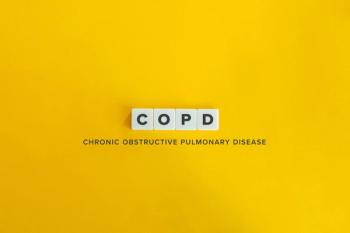
Examining Protective Effects of Omega-3 Fatty Acids in Pulmonary Fibrosis
Higher concentrations of omega-3 fatty acids were associated with the ability to exchange carbon dioxide more efficiently and longer transplant-free survival.
Higher levels of omega-3 fatty acids in the blood are associated with slower disease progression and longer transplant-free survival in patients with pulmonary fibrosis, new research published in the journal CHEST found.1
Pulmonary fibrosis is a group of diseases that cause inflammation and scarring to lung tissue. It is 1 of the leading indications for lung transplants and can lead to chronic respiratory failure and death. Current treatments can aid in slowing disease progression, but side effects often lead to discontinuation.
“Long-chain omega-3 fatty acids are a subgroup of polyunsaturated fatty acids that are either derived from alpha linolenic acid or obtained from dietary intake of foods such as fish and nuts or medications and supplementation,” the authors wrote. “The role of omega-3 fatty acids in chronic lung diseases has received significant interest given prior epidemiological studies that suggest a protective association.”
Researchers from the University of Virginia Health System conducted a study to determine the associations of plasma omega-3 fatty acid levels with disease progression and transplant-free survival in patients with pulmonary fibrosis. Data was gathered from the Pulmonary Fibrosis Foundation Patient Registry, the University of Virginia, and the University of Chicago.
The study cohort included 309 patients with clinically diagnosed pulmonary fibrosis, of which 74% were men and 88% had idiopathic pulmonary fibrosis. Fatty acid concentrations in blood plasma samples were assessed by ultrahigh performance liquid chromatography.
The primary exposure variable of interest was the N-3 index, which measures the percentage of eicosapentaenoic acid (EPA) and docosahexaenoic acid (DHA) in red blood cell membranes.
Investigators found that higher concentrations of omega-3 fatty acids were associated with the ability to exchange carbon dioxide more efficiently over a 12-month period. Higher levels of N-3 index were also associated with longer transplant-free survival. Cardiovascular disease history, smoking, and antibiotic usage did not significantly modify associations.
Additionally, omega-3 fatty acid levels were not significantly associated with changes in forced vital capacity.
Study limitations include not repeating fatty acid measurements, lack of available data on lung biospecimen and omega-3 fatty acids, and that all 3 cohorts in the study were from the United States. Researchers also noted that their findings could be explained by the fact “…higher omega-3 fatty acid concentrations may be an indirect marker of overall better health and lifestyle practices.”
“We need further research to determine if there are specific omega-3 fatty acids that may be beneficial and, if so, what are their underlying mechanisms,” John Kim, MD, lead author on the study, said in a release.2 “Similar to other chronic diseases, we hope to determine whether nutrition related interventions can have a positive impact on pulmonary fibrosis.”
References
1. Kim JS, Ma SF, Ma JZ, et al. Associations of Plasma Omega-3 Fatty Acids With Progression and Survival in Pulmonary Fibrosis. Chest. Published online October 20, 2023. doi:10.1016/j.chest.2023.09.035
2. Healthy omega-3 fats may slow deadly pulmonary fibrosis, research suggests. News Release. University of Virginia Health System. January 2, 2024. Accessed January 2, 2024. https://www.eurekalert.org/news-releases/1029538
Newsletter
Pharmacy practice is always changing. Stay ahead of the curve with the Drug Topics newsletter and get the latest drug information, industry trends, and patient care tips.























